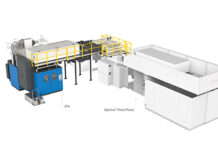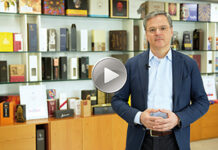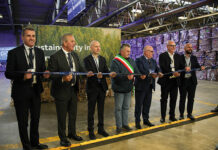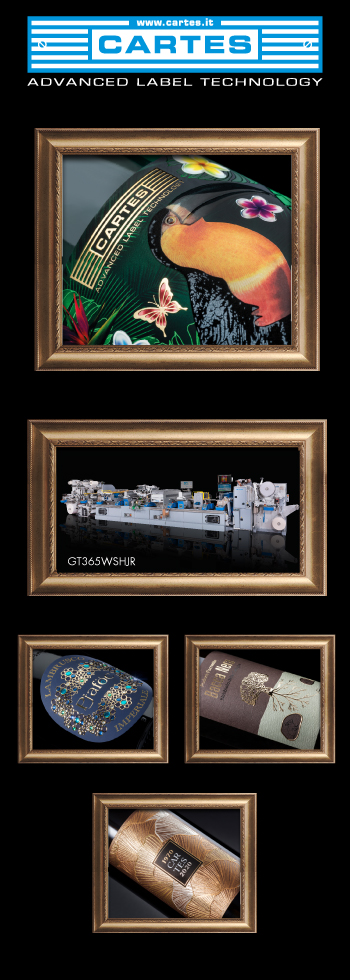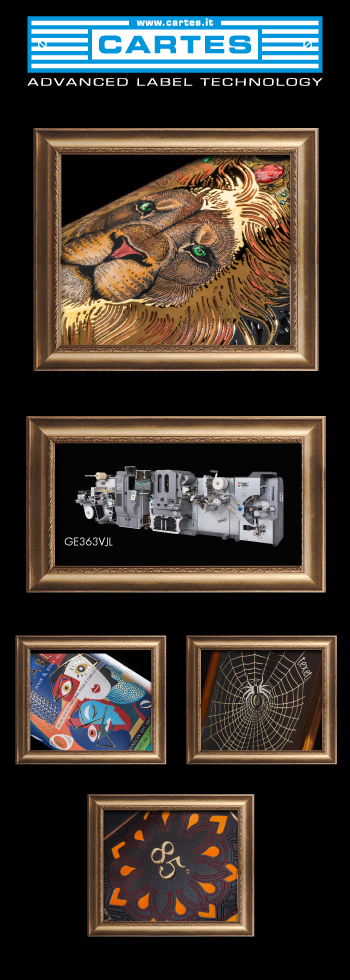
Nick Coombes speaks with longtime narrow web specialist Paul Briggs, formerly with Mark Andy and Xeikon, and now with Omet, about the effect of the coronavirus pandemic on manufacturers and converters.
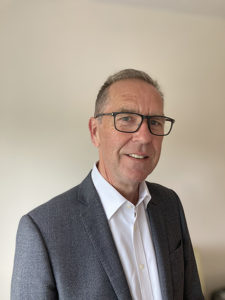
What has been the immediate effect of Covid-19 and lockdown?
“Very mixed – there have been winners and losers. Some have seen an overnight leap in demand for food, pharmaceutical and sanitising product labels as the health scare kicked in, and all restaurants, canteens, and other places to eat-out closed down, which created an instant spike in demand from the supermarkets and other food retailers. The industrial sector appears to have been worse hit with demand from a number of traditional customers falling away – though there has been some new business growth too”.
How are converters reacting to the changing situation?
“It depends on their customer base, but in general we’ve seen companies furloughing staff and operating with reduced numbers in their plants to accommodate social distancing requirements, while some workers have been shielding for health reasons. It will be interesting to see, when the health risk declines, how many of these people will be re-engaged. Will the pandemic have shown company managers how lean an operation they can run and still survive – will it prove to have kickstarted a permanent new way of working? It’s difficult to predict how, but it will change for sure”.
How has Omet reacted and adapted to the new situation?
“First of all, it never closed, even at the height of the pandemic in Italy. Designated as an essential supplier to the food and pharma industries, it adopted a ‘work at home’ policy for all who could do so, and split the shop floor workforce in half to allow for social distancing with all the necessary safety devices. Press production carried on as usual, with the exception that some components were subject to delays in delivery, but otherwise the lines kept rolling and machines were tested and shipped as normal. In fact, the surge in demand from brand owners for increased volumes of labels and printed packaging put pressure on Omet to supply more technology, and faster. We did our best, but you can’t ramp up production of capital goods that quickly!”.
How did Omet cope with installations while there were travel restrictions?
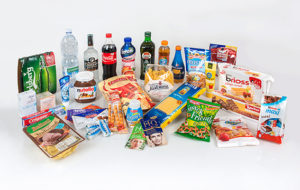 “We did it remotely with the aid of a very clever installation kit tool called ‘NOVA’, which stands for New Omet Virtual Access, and allows for presses to be installed and commissioned by the customer’s own technicians under remote guidance from Omet specialist engineers in Italy. It proved a great success with a number of machine installs, and also has the benefit of being a useful tool for fault diagnosis and after sales support. The pandemic has really put modern communication technology in sharp focus, which will be a plus point going forward”.
“We did it remotely with the aid of a very clever installation kit tool called ‘NOVA’, which stands for New Omet Virtual Access, and allows for presses to be installed and commissioned by the customer’s own technicians under remote guidance from Omet specialist engineers in Italy. It proved a great success with a number of machine installs, and also has the benefit of being a useful tool for fault diagnosis and after sales support. The pandemic has really put modern communication technology in sharp focus, which will be a plus point going forward”.
Looking ahead, how will this year’s unusual trading conditions affect the market – is it a short-term blip or will it make fundamental changes to the way the narrow web sector functions?
“If the demand for delivery of printed packaging wasn’t fast enough before, it just got faster! But that’s been a trend for some time – ‘just enough’ and ‘just in time’ are not new concepts, and I’d say the narrow web sector has reacted better than most to market changes over the years – in fact Omet prides itself on its pioneering R&D and the number of innovative techniques it has brought to the market in response to changes in demand. For example, we were the first to include chilled impression drums with UV lamps mounted directly onto them to handle heat sensitive substrates, which responds closely to a market trend for more filmic work. We were the first to offer fully automated register control both across and along the web, which has a significant effect on make-ready time and waste. Then there’s the work we’re doing on developing ways of re-using the liner as a laminate as part of our ‘green technology programme’ – all these are market driven but need a creative mindset to innovate and develop the technology”.
So, more flexibility is the key?
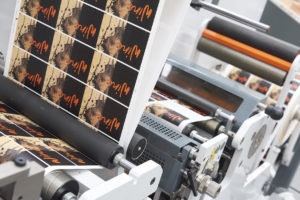 “Yes it is. One thing the pandemic has done is make converters review their product portfolio and see how they can use their existing capacity to take advantage of the changed market conditions. Once again, the flexible production capability of Omet presses is a real benefit in this situation. I know of a number of label converters who have adapted production on their presses to fulfil the surging demand for face masks and items of PPE – it just takes some lateral thinking and the right technology. This is why our collaboration with Durst to produce a hybrid press has been so important. It as the ability to delam/relam, reverse print, turn the web and cross it over for multi-page labels, as well as offer all the variable print advantages of digital inkjet”.
“Yes it is. One thing the pandemic has done is make converters review their product portfolio and see how they can use their existing capacity to take advantage of the changed market conditions. Once again, the flexible production capability of Omet presses is a real benefit in this situation. I know of a number of label converters who have adapted production on their presses to fulfil the surging demand for face masks and items of PPE – it just takes some lateral thinking and the right technology. This is why our collaboration with Durst to produce a hybrid press has been so important. It as the ability to delam/relam, reverse print, turn the web and cross it over for multi-page labels, as well as offer all the variable print advantages of digital inkjet”.
How will this affect investment going forward?
“I think converters will focus on a broad spread of production capability with increased automation and an overall reduction in manual tasks. The entire supply chain is under pressure and that’s not likely to alter, so for most suppliers it has to be ‘right first time’. The more that can be entrusted to technology to improve accuracy and reduce waste and energy consumption, the better. That’s what we notice at Omet in the way customers now specify their presses – it’s all about producing high quality at high speed with minimal downtime. In general terms, it probably means fewer simple presses for the developed markets which look for more added value. That’s where Omet’s innovative technology gives it a strong hand”.
What do you think the market trends will be when normality returns?
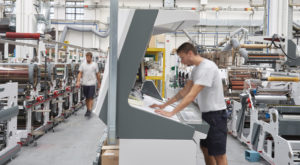 “Well, you first have to define what the new normality will be, because I don’t see the world and business going back to where it was pre-lockdown – too much has already changed. We may be past the first wave of the virus, but it hasn’t gone away, so life will continue to be affected for a long time yet. Home cooking and entertainment will remain at the expense of the event industry and both sport and the arts will continue to suffer with little or no public attendance. Online retailing, which was already growing, has seen a major boost to the detriment of the High Street shops, and while this growth will slow, I think the retail trade will see a fundamental and permanent shift in shopping habits and all that goes with it”.
“Well, you first have to define what the new normality will be, because I don’t see the world and business going back to where it was pre-lockdown – too much has already changed. We may be past the first wave of the virus, but it hasn’t gone away, so life will continue to be affected for a long time yet. Home cooking and entertainment will remain at the expense of the event industry and both sport and the arts will continue to suffer with little or no public attendance. Online retailing, which was already growing, has seen a major boost to the detriment of the High Street shops, and while this growth will slow, I think the retail trade will see a fundamental and permanent shift in shopping habits and all that goes with it”.
Looking inwards at the graphic arts industry, what long lasting effects will the global pandemic have on how we do business?
“We are already seeing a massive shift in emphasis away from trade shows. Just look at what is happening to the rescheduled Drupa – fewer days, some major manufacturers pulling out, and no real certainty that travel restrictions will allow or encourage visitors to attend. With so many companies having their own dedicated showroom/demo facilities now, to which they can invite existing and potential customers on an exclusive basis at a fraction of the cost of exhibiting at a trade fair, it’s hard to see how all of the planned events for next year will go ahead. And, once they are gone from the calendar, the will and need for them to return may be gone too. Omet has recently opened new facilities in Lecco, with a purpose-built demo centre called the ‘Omet Drome’, and these provide a richly enhanced experience for converters looking to test their work on the wide variety of press technology available. Why do they need to go to a trade show and put their health at risk, when it’s so much more difficult to create and maintain a ‘safe’ environment there?”.
How do you see technology responding to the changing market demands?
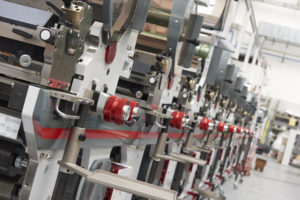 “I think the next five years will see major changes – the younger generation coming through is looking for a cleaner, greener society and this will need to be reflected in the way that all goods are packaged, irrespective of how shopping habits change. Waste will continue to be the hot topic so it will be incumbent on all companies to operate a lean manufacturing process using the latest techniques. In the case of machinery suppliers, we have noticed at Omet that while digital print will continue to grow in volume, flexo and offset techniques will change and improve. Our new XJet hybrid line, developed in partnership with Durst, is very much cutting edge in this market sector, and combined with Omet’s expertise in online converting and embellishment processes, makes single pass production of labels and flexible packaging a highly profitable commercial proposition”.
“I think the next five years will see major changes – the younger generation coming through is looking for a cleaner, greener society and this will need to be reflected in the way that all goods are packaged, irrespective of how shopping habits change. Waste will continue to be the hot topic so it will be incumbent on all companies to operate a lean manufacturing process using the latest techniques. In the case of machinery suppliers, we have noticed at Omet that while digital print will continue to grow in volume, flexo and offset techniques will change and improve. Our new XJet hybrid line, developed in partnership with Durst, is very much cutting edge in this market sector, and combined with Omet’s expertise in online converting and embellishment processes, makes single pass production of labels and flexible packaging a highly profitable commercial proposition”.
So, are you optimistic or pessimistic about the future overall?
“Very optimistic for our sector of the market! I’ve always thought that narrow web was particularly agile in its response to changes in demand, and although web widths have increased and presses have become more sophisticated, I believe it’s lost none of its ability to respond. What I see in Omet’s case is a continuation of its unique ability to broaden its market appeal. It has the most comprehensive range of technology of any manufacturer in the sector, and expertise in markets from self-adhesive to filmic labels, a variety of flexible packaging, folding cartons, and special materials. Best of all, Omet truly engages with its customers and will build to their individual requirements, so it’s difficult to see anything other than continuous growth here”.







